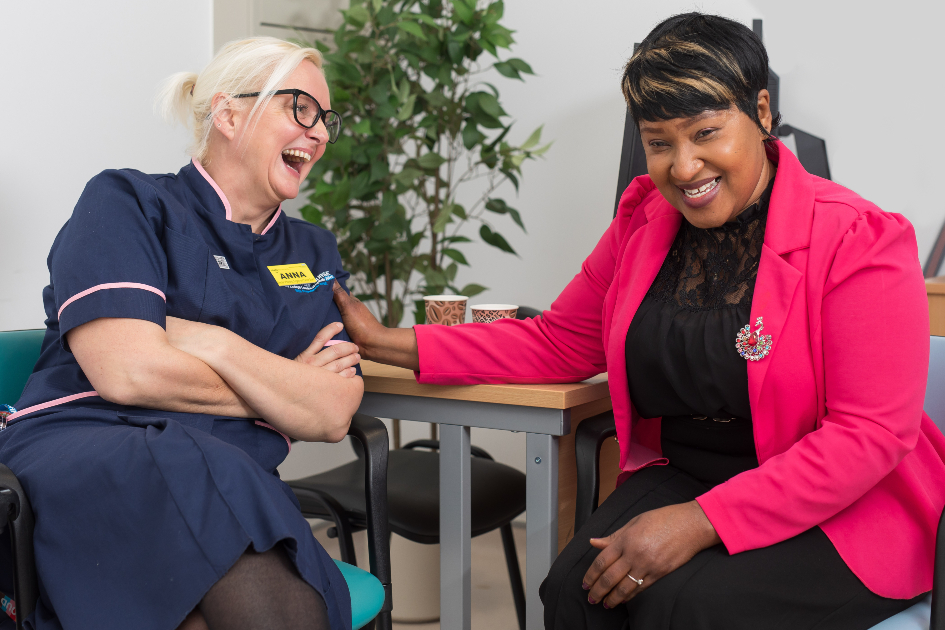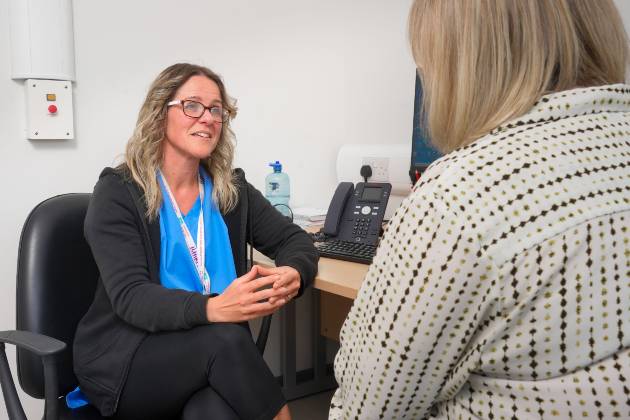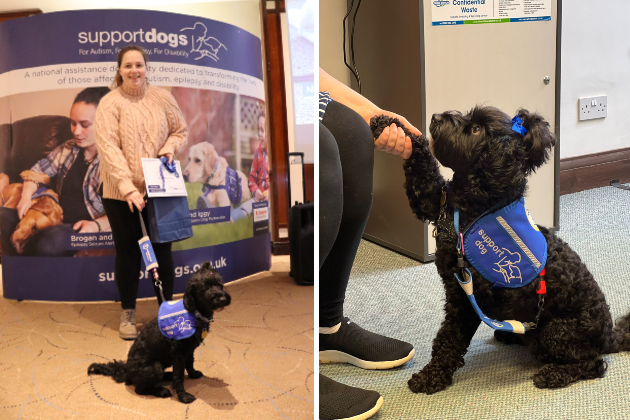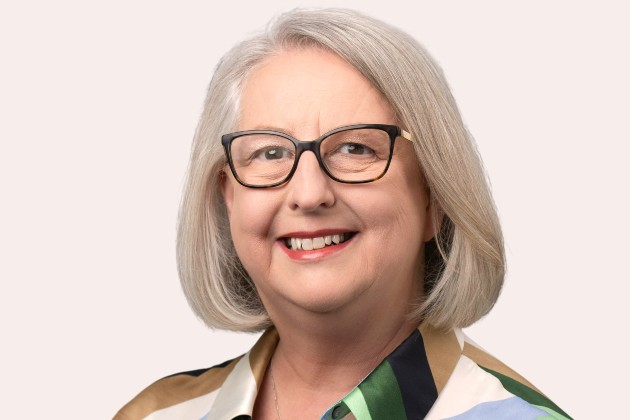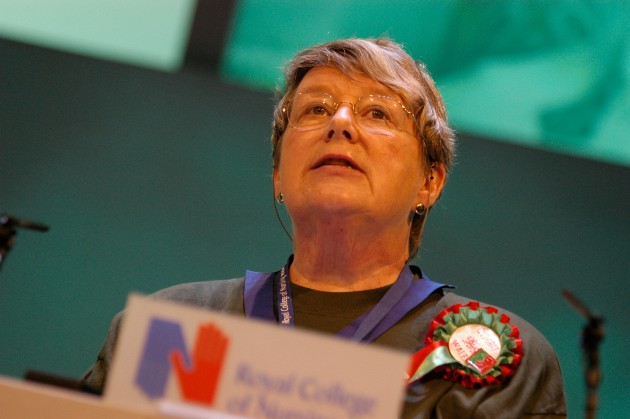Scrolling through news feeds and hearing reports on the radio and television, it would seem you cannot escape updates about conflicts and wars happening around the world right now.
We see the explosions, drone attacks and razed buildings, listening to the plight of those displaced, without homes and shelter, fleeing for their lives and caught up in the reality of war.
Behind every image or video of unrest and conflict are nursing professionals putting their own lives on the line caring for patients in these extreme environments.
Almost all the health facilities have been destroyed
Nursing staff working in these troubled regions face incredibly challenging and pressured conditions, providing essential care often with limited supplies and in constant danger.
One of these health care professionals is registered nurse David Anderson.
He spent seven months in Gaza last year setting up a tented field hospital and caring for those caught up in the conflict.
An NHS nurse for several years, David has used his nursing skills to support various humanitarian crises, including the Ebola outbreak in Sierra Leone and wars in Lebanon, Myanmar and Ukraine.
Critical lifeline
For the past three years David’s been senior health adviser for humanitarian aid charity UK-Med.
Since January 2024, the organisation (with funding from the UK Government) has been operating two emergency field hospitals in Gaza and providing support to the emergency department at Nasser Hospital, treating over half a million patients.
Facilities are staffed by international and local health care professionals working in extremely volatile and resource-scarce situations.

UK-Med’s operations are a critical lifeline where formal health care infrastructure has been severely affected.
"In Gaza, almost all the health facilities have been destroyed,” says David, who was awarded an OBE in the King's New Year's honours list for his services to the UK's emergency health care response overseas.
“We had to build it from scratch in just four weeks, including sourcing all the materials and equipment, which is difficult when road blockades mean some resources aren’t even allowed into Gaza,” he says.
Challenging conditions
UK-Med recruited 600 Gazans to work in the hospital, from physiotherapists, nurses, doctors and security staff. “These people have been through a lot, but they’re wonderful, articulate and hardworking staff,” he says.
The main challenges in these conditions are, as you would expect, limited supplies of medicines and equipment.
"It’s difficult even to get paracetamol,” says David. “Ketamine has been used instead of anaesthetic in some circumstances.”
Conditions are basic and cramped with around 120 beds, one operating theatre and 700 patients. Drones are constantly buzzing overhead, but David says it’s something you just get used to.
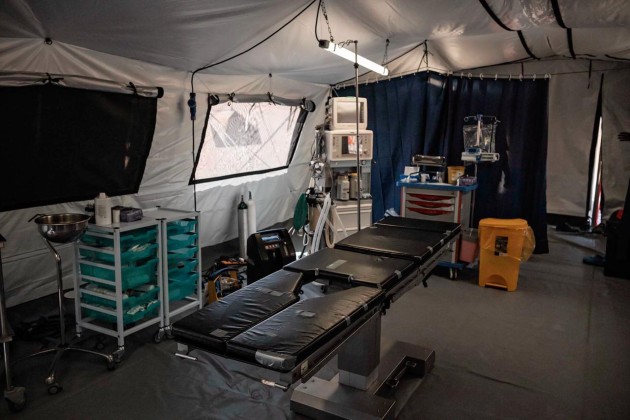
Lack of food and water
Basic necessities, such as food and water, are also scarce in Gaza.
“If people aren’t able to eat and rest, you can’t have good health,” says David. “We all suffered from food shortages in Gaza, patients and staff alike. Food prices are hyper-inflated, or the blockades mean little food gets through.”
I'm there to help anyone
Other challenges can come from the patients themselves and their families.
“I was trying to help someone with a gunshot wound,” says David. “The patient’s brother came in and pointed an AK47 assault rifle at me. Thankfully, the interpreter was able to intervene. But threats like this are a frequent occurrence because people are scared and threatened themselves.
“There’s an assumption that we’re trying to help one side over another, but I’m there to help anyone.”
It’s good to talk
David recalls a mass casualty when 70 patients flooded into the hospital. Around 50% of them were children, some of whom had gunshot wounds.
“It’s catastrophic to see children injured in this way, there’s no blood products, no opioids, but we do what we can. You have to make tough choices in these situations,” he adds.
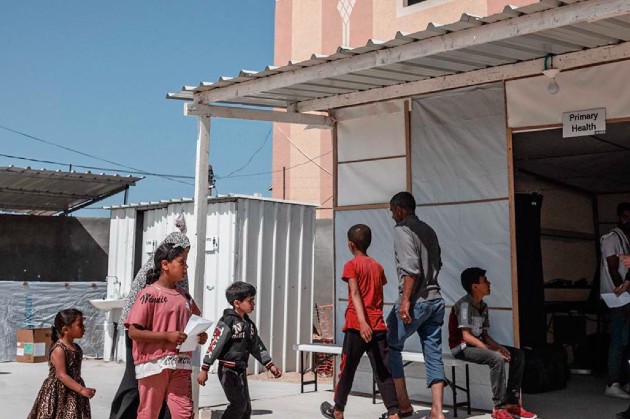
David emphasises the importance of debriefs after such extreme incidents.
“We have strong conversations; it’s important to be able to talk and share what we might do differently or offer support to those particularly affected by what they’ve witnessed.
“Nursing staff in Gaza are hugely resilient; the emergency department is almost entirely run by them and they really have to uplift their skills and think on their feet,” adds David.
Short-term opportunities
UK-Med works with the NHS to source medical staff interested in short-term humanitarian aid placements from three weeks to six months.
“We’re a unique organisation as our volunteers still remain in their NHS job and keep their salary, similar to a sabbatical,” says David.
Many nurses go back to their jobs with renewed focus
Although working in an area where there’s a humanitarian crisis can be daunting, many people find a short placement hugely rewarding.
“If nothing else, when you experience conflict or a disease outbreak in another part of the world, you appreciate how valuable a good health care system is,” says David.
“The feedback we get from those who’ve done a short-term mission is overwhelmingly positive.
“Many nursing staff go back to their jobs with renewed focus, able to think differently, to feel more clinically competent and to build resilience,” he adds.
How the RCN supports nursing staff globally
The RCN International Academy is dedicated to supporting nursing staff across the world.
We're expanding our work to provide technical assistance to nursing staff in areas of humanitarian need and conflict and are working with partners, including UK-MED. Find out more about the academy and how you can get involved.



